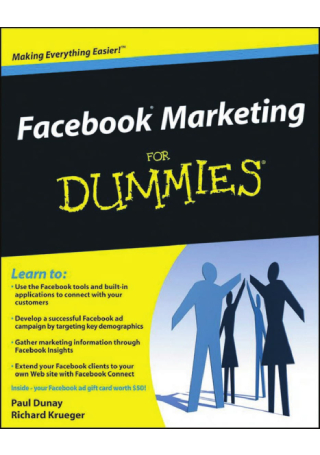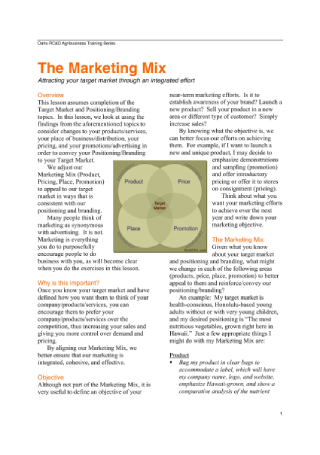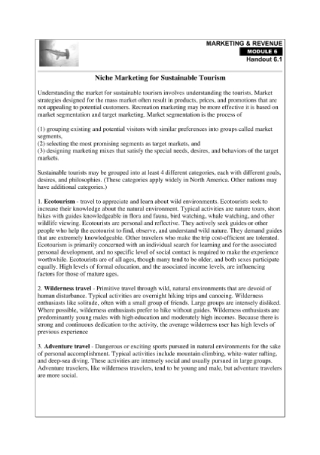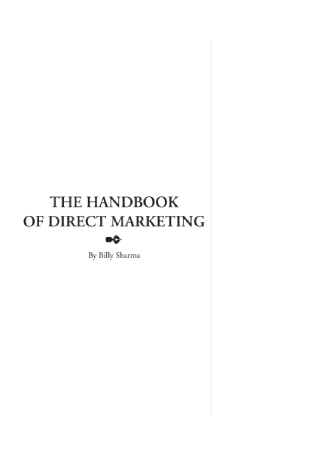Importance of Marketing in Businesses (With 19+ Samples)
Check out the following samples to see how marketing is applied in business.
-

An Introduction to Email Marketing
Learn how email marketing has influenced today’s businesses through this sample.
-

Annual Marketing Plan for Photographers
Create a marketing plan for your photography business using the given sample.
-

Content Marketing Handbook
Get to know the simple ways to innovate your marketing approach with content marketing.
-

Digital Marketing Strategy Guide
Plan and execute effective digital marketing strategies with the use of this guide.
-

Essentials of Marketing Research
Use this sample to solve business problems and exploit business opportunities effectively.
-

Facebook Marketing for Dummies
Gain useful knowledge on the basics of Facebook marketing through this sample.
-

Guerrilla Marketing Report
Measure the success of your guerrilla marketing efforts with a detailed report.
-

Guide to B2B Marketing
Build lead generation campaigns for your business using the guide provided.
-

Influencer Marketing Report
See the state of influencer marketing in present-day society through this report.
-

Instagram Marketing Master Guide
Master the art of Instagram marketing with the help of this guide.
-

Internet Marketing Textbook
Refer to this sample to keep up with the latest trends and studies on Internet marketing.
-

Introduction to Online Marketing
Better understand the principles of online marketing through this sample.
-

IT Marketing Proposal
Satisfy the needs of clients in the fast-paced industry by constructing a detailed proposal.
-

Marketing Mix
Get the right combination for the 4Ps of marketing using this sample.
-

Marketing Plan for a New Product
Design a strategic marketing plan with the help of this sample.
-

Niche Marketing for Sustainable Tourism
Read this sample to get a closer look into the fundamentals of niche marketing for sustainable tourism.
-

Referral Marketing Guide for the Financial Industry
Encourage customers to recommend your offers to others with the help of this guide.
-

Social Media Marketing Strategy
Develop the perfect social media marketing strategy for your business through this sample.
-

Strategic Marketing Plan
Establish a marketing strategy aligned with your business needs through a comprehensive plan.
-

The Handbook of Direct Marketing
Gather valuable information on direct marketing with the sample given.
FREE Marketing in Businesses s to Download
Importance of Marketing in Businesses (With 19+ Samples)
What Is Marketing?
Seven Reasons Why Marketing Matters in Business
What Is Marketing?
Marketing refers to the process of selling a product or service by getting people interested in what you have to offer through various strategic efforts. This is usually achieved through extensive market research, analysis, and understanding of a target customer’s best interests. However, there’s more to marketing than simply advertising a brand via print marketing or digital marketing, as this component of business management also pertains to every other aspect of a business, including product development, distribution methods, and sales.
Seven Reasons Why Marketing Matters in Business
It’s no secret that the bottom line of any business is profit. After all, it’s impossible for a business to operate without the financial means to support its projects and staff members. But profit is merely a result of successful sales, which makes marketing a key element of an organization’s very existence. Marketing has the ability to generate sales by informing, attracting, and convincing consumers that what you have to offer is of value to them.
Let’s take a look at some of the major reasons as to why marketing is important in business.
